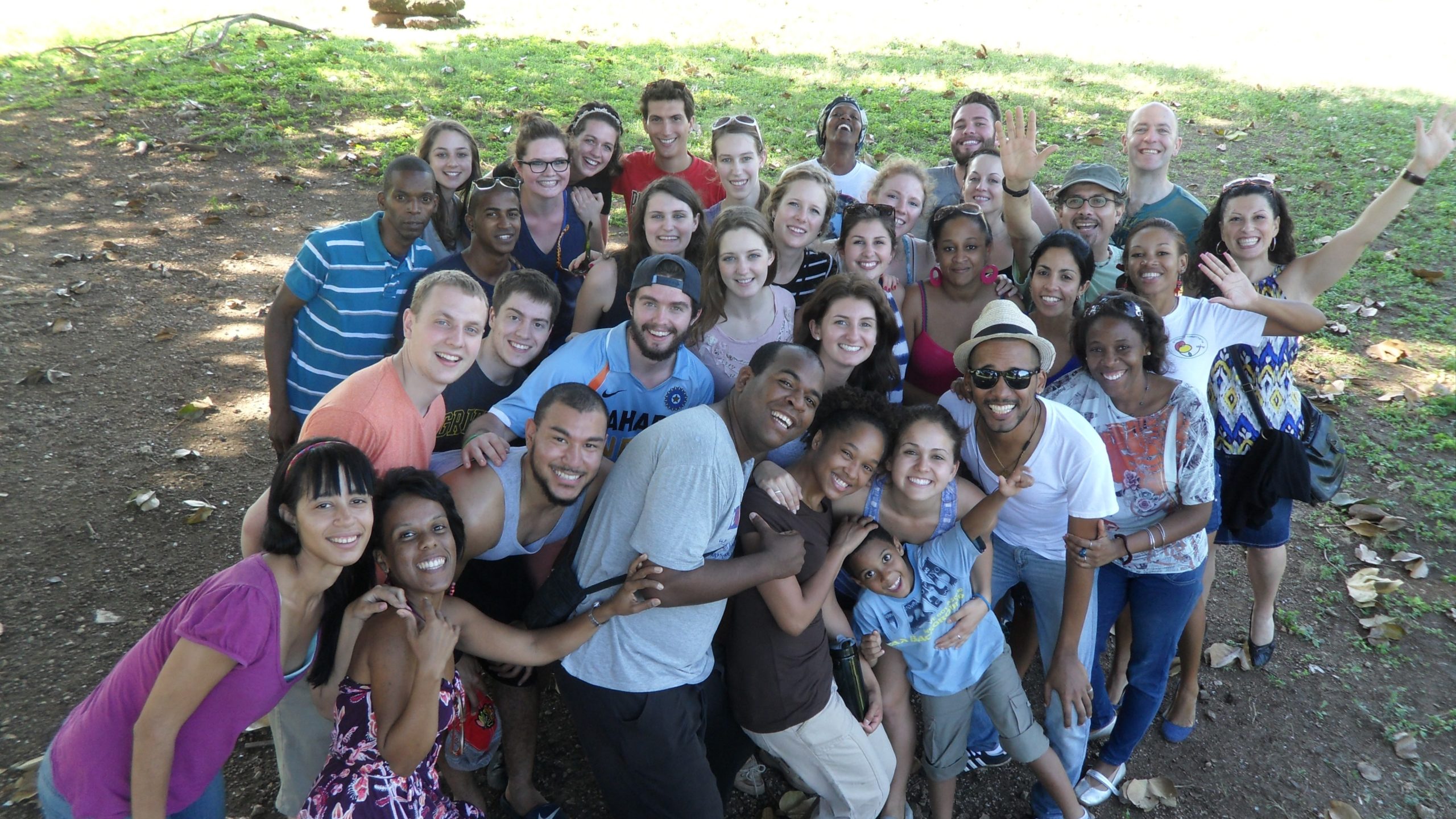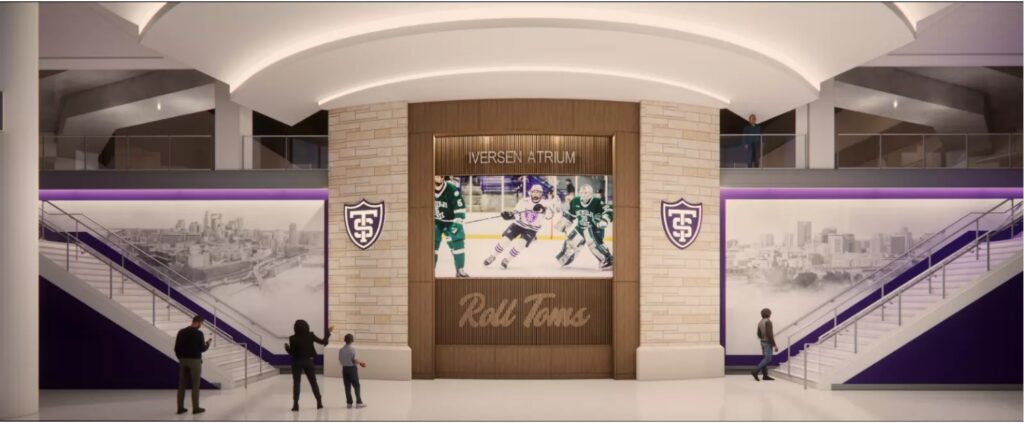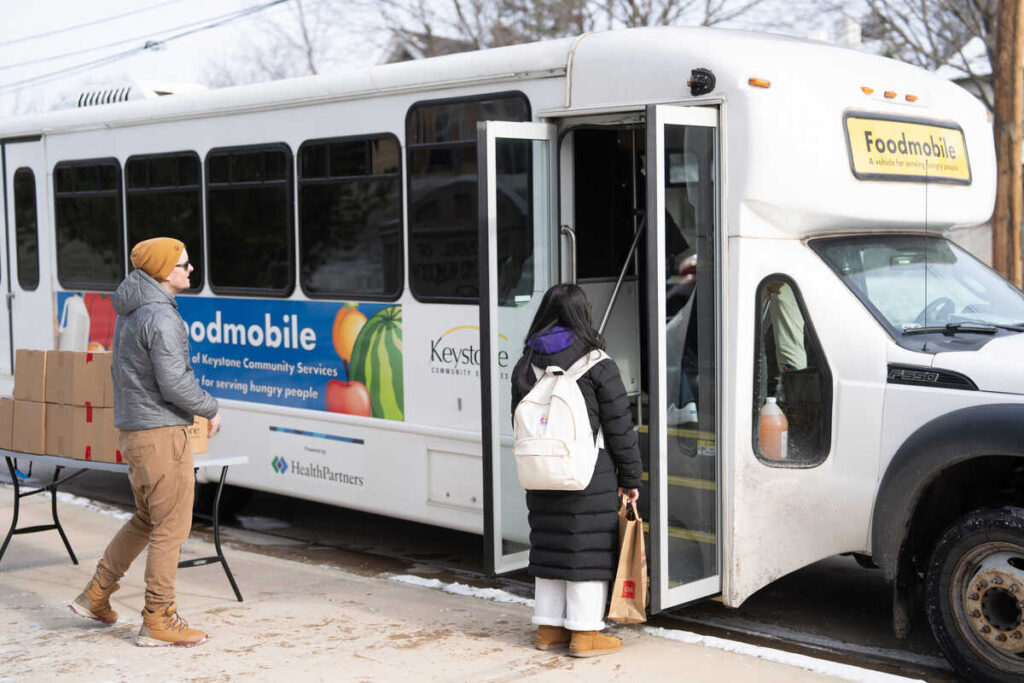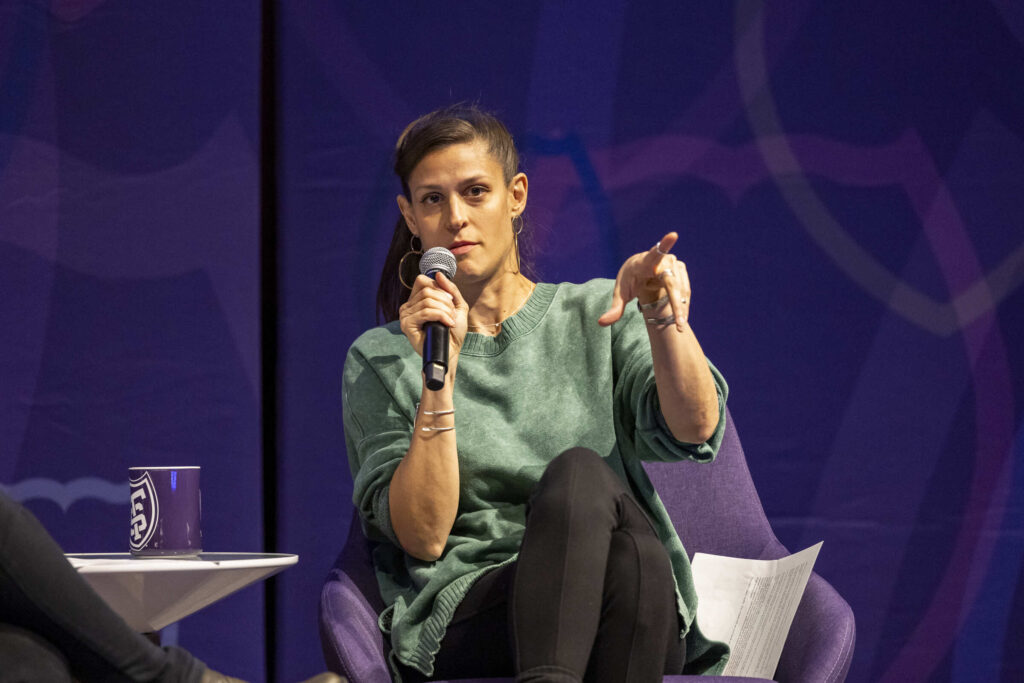Back to Cuba
After the University of St. Thomas' first historic trip to Cuba, during which the men's baseball team participated in the first college-level game played between Cuban and U.S. teams in Cuba since Fidel Castro came to power nearly 40 years earlier, St. Thomas has maintained a close relationship with the University of Havana. In successive years, faculty and staff from both universities have traveled between the two schools in a mutually enriching scholarly exchange to conduct research and teach workshops.
St. Thomas students studied in Cuba on five occasions between 2001 and 2004 but, due to the U.S. government's tightened restrictions after 2004, haven't studied in Cuba for a decade ... until January.
"A part of something so much bigger than myself"
Last month Dr. Don Miller and Dr. Sonia Rey-Montejo of St. Thomas' Modern and Classical Languages Department and 18 St. Thomas students broke the dry spell. All of the students had advanced Spanish-speaking and comprehension skills; classes were taught in Spanish, and all assigned reading materials also were in Spanish.
The advanced course, "Ethnicity, Multiculturalism and Globalization in Cuban Society," examined contemporary issues in Cuba within the context of globalization, international relations, education, society and culture. Monday through Friday Cuban scholars (as well as Miller and Rey-Montejo) gave lectures on a range of subjects, including Cuban-U.S. relations, effects of recent advances in health care, education and changing employment opportunities, and perceptions of race. Students also had ample time to learn about Cuban culture outside of class during afternoon site visits and weekend "cultural opportunities," including instruction in Cuban-style salsa dancing, photography and cooking.

St. Thomas students Peter Scheerer, Kristin Braden, Grace Burmeister, Marissa Alliegro, Laura Landvik, Sam Carlson and Liz Jagerson take a break from their stroll down Callejón de Hamel, a short, colorful street in Havana known for its eclectic arts and music scene. Photo courtesy of Brittany Fink.
Senior business management/Spanish major Brittany Fink said the connections she made outside of class "changed my views on life. I can't even begin to describe the positive, long-lasting effects they have had on me. We would learn about an aspect of history, the Revolution or culture in class, and then we would go out and experience how that played a role in today's Cuban society. Asking for an opinion from a local about something I had just learned in class was astonishing. I would get an answer that affirmed what I learned, but they also showed me a different side that I had never thought about. ... When I left Cuba, I left a part of my heart with the people who taught me."
Everyday counted as an opportunity to interact with Cuban culture, neuroscience and Spanish, double major Peter Scheerer said. So much that he "really saw the hearts of the people," he emphasized. Testimony for his fondness and appreciation for, what he and others discovered to be, a Cuban sensibility that favors social connection abounded – from talking daily with the drivers of the "maquinas," 1950s-era American cars that serve as public transportation, which the students would pay 50 cents to take to class each day, to the maternal care with which the female staff at their lodging treated the students after many of them took ill.
Fink also noted marching with tens of thousands of Cubans in the March de las Antorchas, an annual midnight torch parade that takes place on the streets of Havana on the eve of the birthday of José Martí, a poet and revolutionary famous for leading Cuba's successful independence from Spain, as a powerful experience. The students saw Raúl Castro and Nicolás Maduro, president of Venezuela, that night. "It made me feel like I was part of something so much bigger than myself," she remembered. Coincidentally, the march also was among the last festivities in which the 2000 baseball trip participated during that group's eight-day sojourn. Much in the spirit of this year's group, St. Thomas President Emeritus Father Dennis Dease had called it "quite a grand ending to our week … the experience gave our students a chance to glimpse the soul of the University of Havana."
Dispelling stereotypes
Despite the tightened restrictions on the U.S. trade embargo during the George W. Bush administration, St. Thomas preserved its ties to the University of Havana, hosting many visiting Cuban scholars from the university and maintaining a general license to travel to the country – "general licenses" are granted by the U.S. Treasury Department, which solely authorizes travel to Cuba. These licenses permit a few select groups and purposes, including "educational activities by faculty, staff, and students of accredited U.S. graduate and undergraduate degree-granting academic institutions," Cuban nationals visiting close relatives, and several others to travel to Cuba.
Miller said the embargo, now in effect more than 50 years, still made for logistical problems in getting the program up and running."Minute by minute we were working day after day with the travel agencies and with the CIEE, which is an international study abroad organization. We were their first group back into Cuba since they got their license. So it took a full year to put all the pieces into place before we could go."
Because the United States does not permit tourist travel to Cuba, much of the program's itinerary had to be painstakingly planned well before the group's departure. Rey-Montejo noted that 90 percent of the class was necessarily academic in order to meet the requirements of the general license, though she and Miller would have liked to have given the students more opportunities to work in service. The group, however, was able to spend a small part of its stay in service-learning, collaborating with Espiral, a local service organization, and the Martin Luther King Jr. Center, which St. Thomas has collaborated with in the past.
Immersion in Cuban culture helped the group see how the embargo prevents Americans from seeing through stereotypes. Fink took an invaluable lesson from working one-on-one with members of Espiral. "I learned that Cubans separate Americans from the U.S. government. They know that we as people don't control the way our government deals with Cuban relations. This is really important and something that Americans can learn from Cuba. Cuba is not Fidel Castro, and I think a lot of times we forget that."
Rey-Montejo seconded Fink: "One of the ideas that some people from the U.S. have is that Cuba has been isolated because of the embargo, but really if you go there you can see that it has not been isolated from the rest of the world. Cubans see the TV shows we see here. They know European music. They have new cars, not American, but new, European cars. We thought it’d be interesting for the students to see how Cuba has been influenced by all these external countries. All the countries in Latin America and Europe are traveling to Cuba and trading with Cuba."

A typical picture of a propaganda billboard in Havana depicting the leaders of the Cuban revolution. A green maquina, a 1950s-era American car used for public transportation, is stationed beneath it. Photo courtesy of Peter Scheerer.
Miller noted that Cuba is a part of the global community and is especially connected to the Spanish-speaking countries of the world. "Yet there's this notion among Americans that the embargo has cut them off from the rest of the world," he said. "It doesn't just cut them off from the U.S. It cuts us off from them. So it's understanding what that means to us as Americans that's important. What it could mean in the future, and how things might be able to change in U.S.-Cuba relations."
Xavier Vergara, an economics major at St. Thomas, said his area of study dialed him into what surprised him most about Cuba. "I learned a lot about their current economic struggles and how our embargo against them is really hurting an amazing people," he said.
A long-standing connection built on disregarded advice
Sarah Spencer, director of Study Abroad at St. Thomas, said "When you look at St. Thomas' international history, Father Dease had a great impact on where UST has gone."
Indeed, the university's ties to Cuba can be traced to Dease's first year in office. The year was 1991, Dease's final year as rector of the Basilica of St. Mary in Minneapolis. Shortly before taking office as St. Thomas president, he made his first trip to Cuba to visit and aid the family of a Cuban émigré he had befriended at the basilica.
But it took another eight years to really get the ball rolling. Dease pointed to Pope John Paul II's historic visit to Cuba in 1998 for sparking his plans into action.
Dease recalled, "At the end of his visit, as he was about to board his flight to Rome, he stated that it was time that Cuba opened its doors to the world, and the world, to Cuba. As the president of an American Catholic university, I felt moved by his words to try to respond in some small way. Armed with introductions by our Canadian friends at Federation College in Thunder Bay, Ontario, Miriam Williams (then-associate academic vice president with responsibilities for international programs) and I began making our exploratory trips in 1999. At the time we were advised not to even try to see the senior administrators at the University of Havana because that would go nowhere, but to focus our attention on less prestigious institutions. Fortunately, we disregarded that counsel and after several trips were invited to meet with the rector of the university, Dr. Juan Vela."
The historic and nationally publicized St. Thomas men's baseball trip and formal exchange agreement followed just a year later in January 2000 as a result of those trips. The Carl and Eloise Pohlad Family Foundation thought the trip significant enough to help it along, underwriting the project with $100,000. The funds also covered expenses for the University of Havana baseball team to travel to St. Thomas a year later.
Today, with somewhat loosened restrictions for Cuban travel and standing on a solid foundation poured 15 years ago between St. Thomas and the University of Havana, Miller hopes this trip will once again open up opportunities for St. Thomas students to study in Cuba, notably in semesterlong programs. He hopes to take another group of students to the country in 2016.







